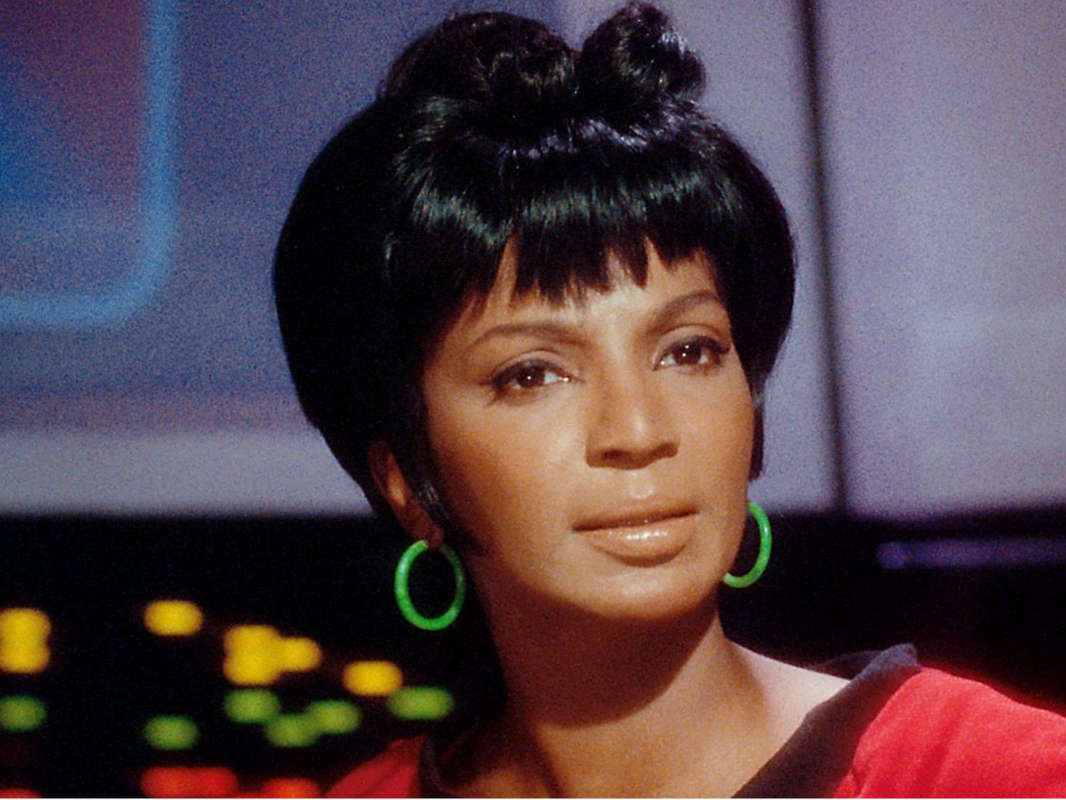
Actor Nichelle Nichols, who found worldwide fame and led the way for black women in TV by starring in the original Star Trek TV series, has died.
Her son, Kyle Johnson, said she died on Saturday in Silver City, New Mexico. She was 89.
Her role in the 1966-69 series as Lieutenant Nyota Uhura earned Nichols great respect from the show's hardcore fans, known as Trekkers and Trekkies.
It also earned her accolades for breaking racial stereotypes and included an interracial onscreen kiss with co-star William Shatner that was unheard of at the time.
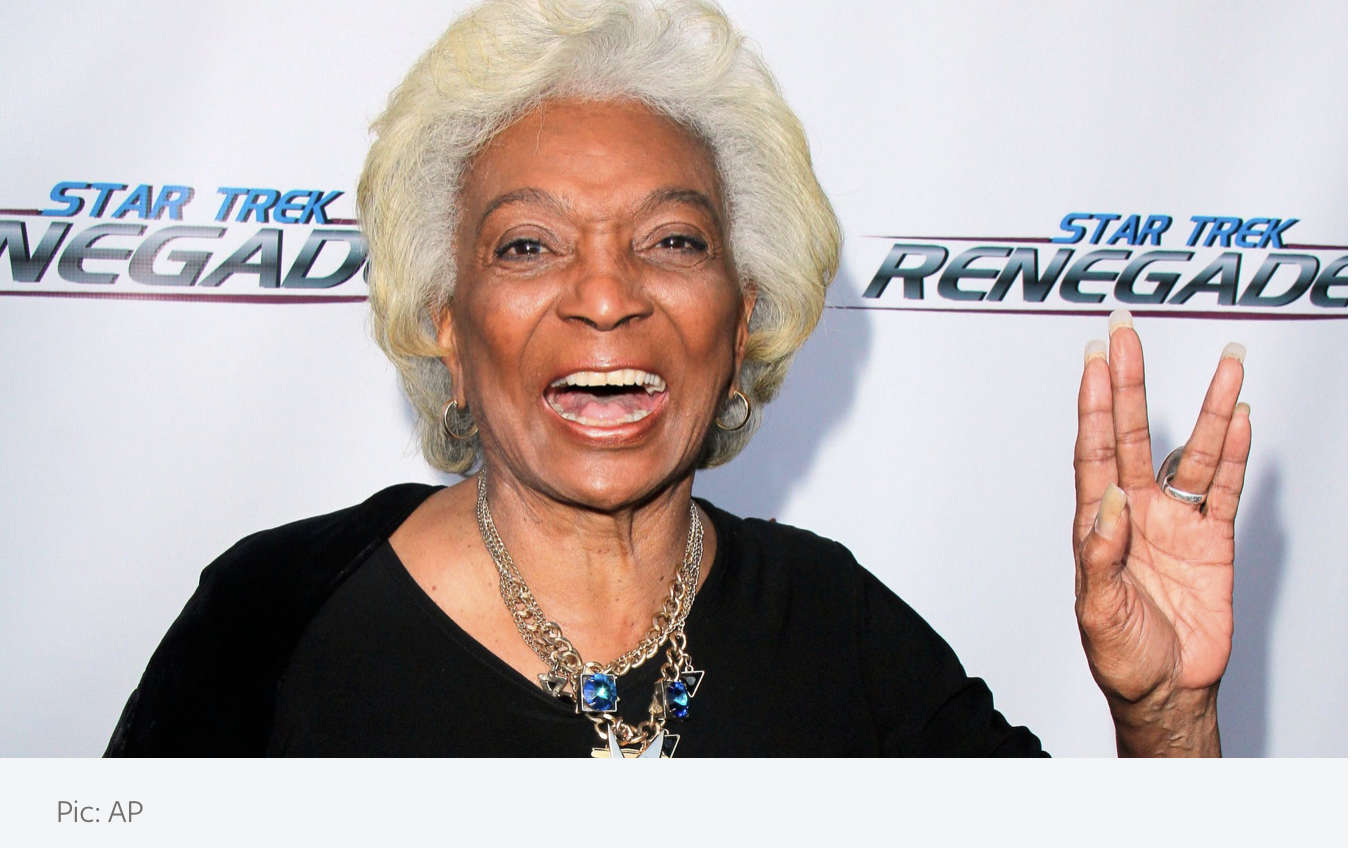
"Last night, my mother, Nichelle Nichols, succumbed to natural causes and passed away," Kyle wrote on her Facebook page.
"Her light however, like the ancient galaxies now being seen for the first time, will remain for us and future generations to enjoy, learn from, and draw inspiration.
"Hers was a life well lived, and as such a model for us all."
Star Trek co-star George Takei tweeted:
"I shall have more to say about the trailblazing, incomparable Nichelle Nichols, who shared the bridge with us as Lt. Uhura of the USS Enterprise, and who passed today at age 89.
"For today, my heart is heavy, my eyes shining like the stars you now rest among, my dearest friend."
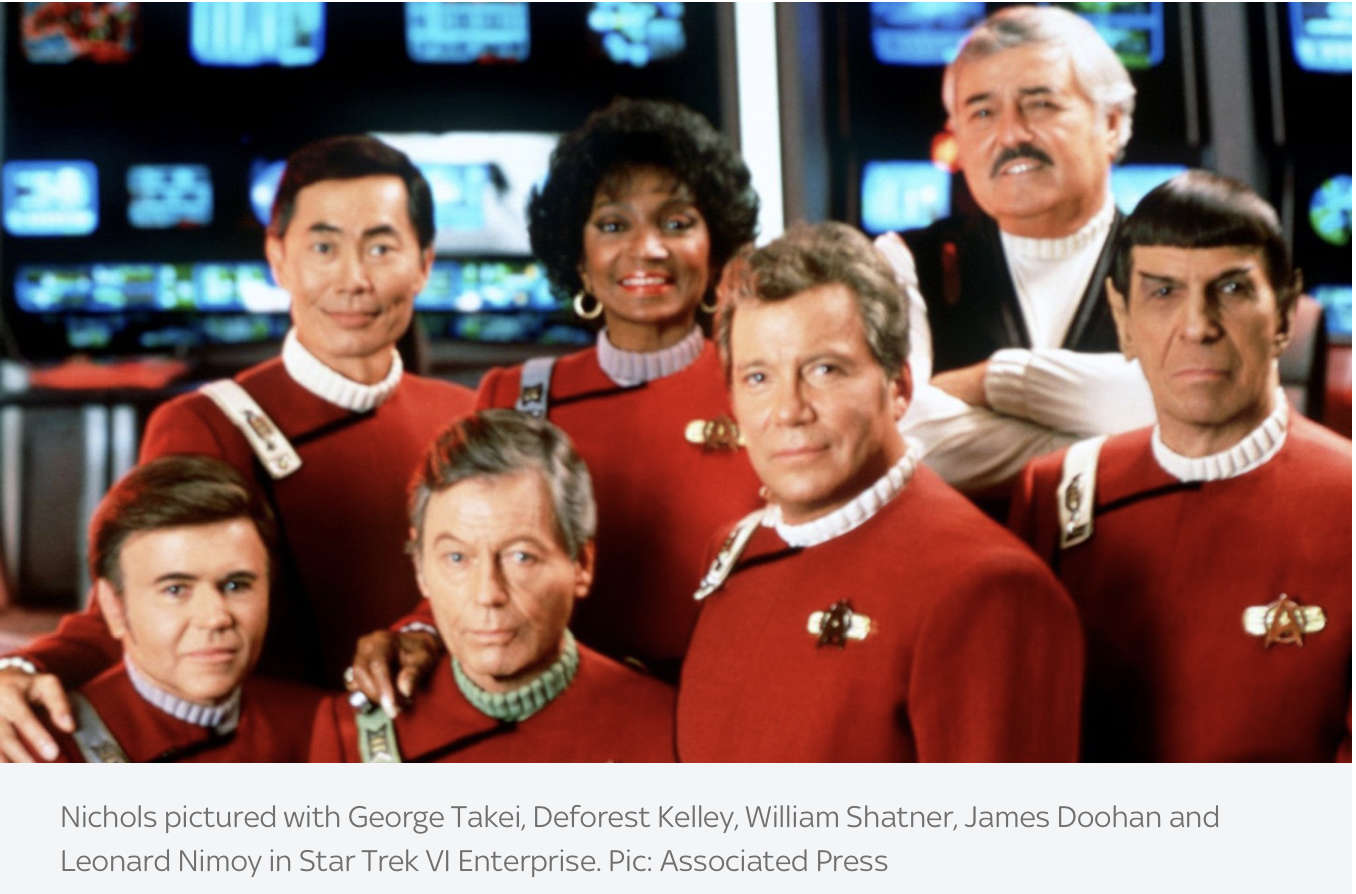
NASA recruiter
Like other original cast members, Nichols also appeared in six big-screen spinoffs starting in 1979 with Star Trek: The Motion Picture and frequented Star Trek fan conventions.
She also served for many years as a NASA recruiter, helping bring minorities and women into the astronaut corps.
The original Star Trek's overriding message to viewers was that in the far-off future - the 23rd century - human diversity would be fully accepted.
"I think many people took it into their hearts... that what was being said on TV at that time was a reason to celebrate," Nichols said in 1992.
She often recalled how Martin Luther King Jr was a fan of the show and praised her role. She met him at a civil rights gathering in 1967, at a time when she had decided not to return for the show's second season.
"When I told him I was going to miss my co-stars, and I was leaving the show, he became very serious and said, 'You cannot do that,'" she told a newspaper in 2008.
"'You've changed the face of television forever, and therefore, you've changed the minds of people,'" she said the civil rights leader told her.
"That foresight Dr King had was a lightning bolt in my life," Nichols said.


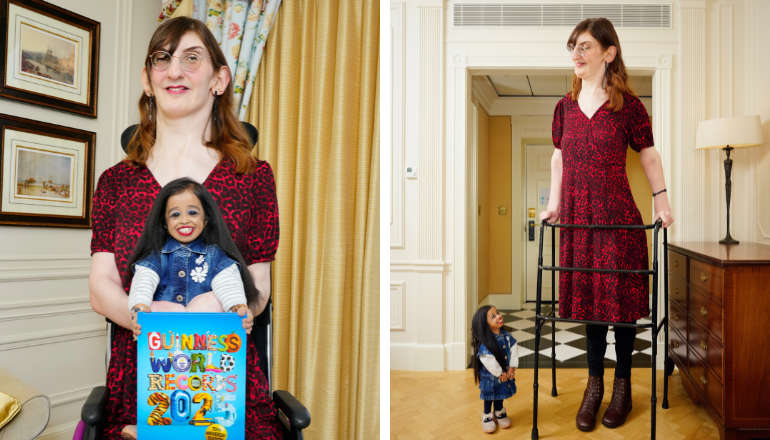 World's Tallest And Shortest Women Meet For First Time To Celebrate Guinness World Records Day 2024
World's Tallest And Shortest Women Meet For First Time To Celebrate Guinness World Records Day 2024
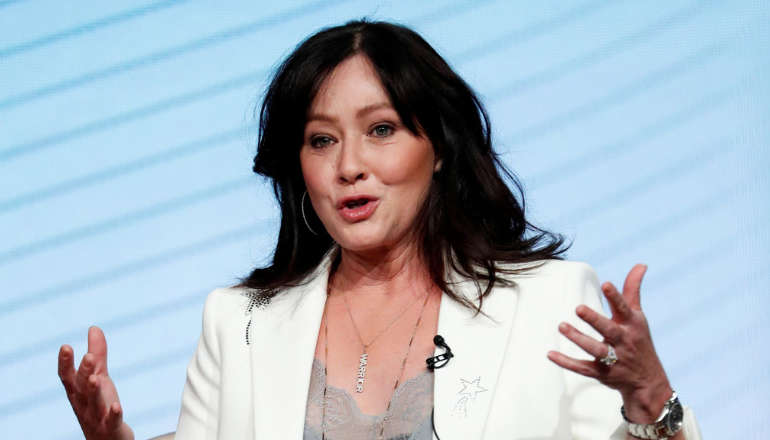 Shannen Doherty: Beverly Hills, 90210 Star Dies Aged 53
Shannen Doherty: Beverly Hills, 90210 Star Dies Aged 53
 Olivia Dean, Chaka Khan, Terence Trent D’Arby And Dionne Warwick Confirmed For Star-Studded Love Supreme
Olivia Dean, Chaka Khan, Terence Trent D’Arby And Dionne Warwick Confirmed For Star-Studded Love Supreme
 Boom Shakes The Room — Explosion of Colour And Happy Vibes At Spellbinding Gathering
Boom Shakes The Room — Explosion of Colour And Happy Vibes At Spellbinding Gathering
 Struggling To Sleep? New Research Names The Movies That Will Help
Struggling To Sleep? New Research Names The Movies That Will Help



 Liz Earle Head Office In Ryde Set For Closure With Staff Set To Face Redundancy
Liz Earle Head Office In Ryde Set For Closure With Staff Set To Face Redundancy
 "Local Control Of Key Decisions": Council Leader Defends Controversial Devolution Plans
"Local Control Of Key Decisions": Council Leader Defends Controversial Devolution Plans
 Three 'Affordable' New Flats Could Be Built On First Floor Of Former Dessert Shop
Three 'Affordable' New Flats Could Be Built On First Floor Of Former Dessert Shop
 Isle Of Wight Council Unveils 2025/26 Budget With Five Per Cent Council Tax Rise In The Pipeline
Isle Of Wight Council Unveils 2025/26 Budget With Five Per Cent Council Tax Rise In The Pipeline